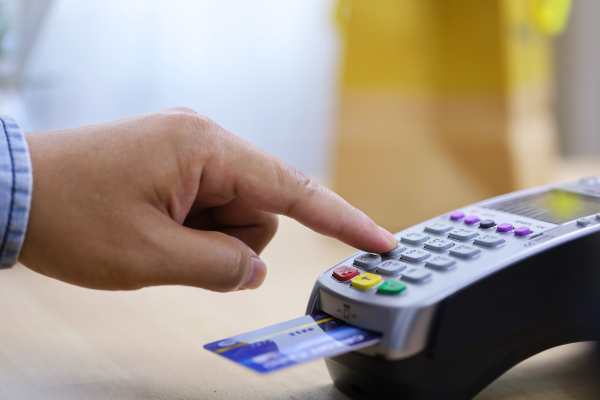Business
Fintech startups are increasingly focusing on profitability

Fintech startups have been massively successful over the past few years. The biggest consumer startups managed to attract millions — sometimes even tens of millions — of users and have raised some of the biggest funding rounds in late-stage venture capital. That’s why they’ve also reached incredible valuations.
After a few wild years of growth, fintech startups are starting to act more like traditional finance companies.
And yet, this year’s economic downturn has been a challenge for the current class of fintech startups: Some have grown nicely, while others have struggled, but the vast majority of them have changed their focus.
Instead of focusing on growth at all costs, fintech startups have been drawing a path to profitability. It doesn’t mean that they’ll have a positive bottom line at the end of 2020. But they’ve laid out the core products that will secure those startups over the long term.
Consumer fintech startups are focusing on product first, growth second
Usage of consumer products vary greatly with its users. And when you’re growing rapidly, supporting growth and opening new markets require a ton of effort. You have to onboard new employees constantly and your focus is split between product and corporate organization.
Lydia is the leading peer-to-peer payments app in France. It has four million users in Europe with most of them in its home country. For the past few years, the startup has been growing rapidly; engagement drives user signups, which drives engagement.
But what do you do when users stop using your product? “In April, the number of transactions was down 70%,” said Lydia co-founder and CEO Cyril Chiche in a phone interview.
“As for usage, it was obviously very quiet during some months and euphoric during other months,” he said. Overall, Lydia grew its user base by 50% in 2020 compared to 2019. When France wasn’t experiencing a lockdown or a curfew, the company beat its all-time high records across various metrics.
“In 2019, we grew all year long. In 2020, we’ve had very good growth numbers overall — but it should have been amazingly good during a normal year, without the month of March, April, May, November.” Chiche said.
In March and early April, Chiche didn’t know whether users would come back and send money using Lydia. Back in January, the company raised money from Tencent, the company behind WeChat Pay. “Tencent was ahead of us in China when it comes to lockdown,” Chiche said.
On April 30, during a board meeting, Tencent listed Lydia’s priorities for the rest of the year: Ship as many product updates as possible, keep an eye on their burn rate without firing people and prioritize product updates to reflect what people want.
“We’ve worked hard and shipped everything related to card payments, contactless mobile payments and virtual cards. It reflected the huge boost in contactless and e-commerce transactions,” Chiche said.
And it also repositioned the company’s trajectory to reach profitability more quickly. “The next step is bringing Lydia to profitability and it’s something that has always been important for us,” Chiche said.
Let’s list the most frequent revenue sources for consumer fintech startups such as challenger banks, peer-to-peer payment apps and stock-trading apps can be divided into three cohorts:
Debit cards
First, many companies hand customers a debit card when they create an account. Sometimes, it’s just a virtual card that they can use with Apple Pay or Google Pay. While there are some fees involved with card issuance, it also represents a revenue stream.
When people pay with their card, Visa or Mastercard takes a cut of each transaction. They return a portion to the financial company that issued the card. Those interchange fees are ridiculously small and often represent a few cents. But they can add up when you have millions of users actively using your cards to transfer money out of their accounts.
Paid financial products
Many fintech companies, such as Revolut and Ant Group’s Alipay, are developing superapps to serve as financial hubs that cover all your needs. Popular superapps include Grab, Gojek and WeChat.
In some cases, they have their own paid products. But in most cases, they partner with specialized fintech companies to provide additional services. Sometimes, they are perfectly integrated in the app. For instance, this year, PayPal has partnered with Paxos so that you can buy and sell cryptocurrencies from their apps. PayPal doesn’t run a cryptocurrency exchange, it takes a cut on fees.
-

 Entertainment6 days ago
Entertainment6 days agoWhat’s new to streaming this week? (Jan. 17, 2025)
-

 Entertainment6 days ago
Entertainment6 days agoExplainer: Age-verification bills for porn and social media
-

 Entertainment5 days ago
Entertainment5 days agoIf TikTok is banned in the U.S., this is what it will look like for everyone else
-

 Entertainment5 days ago
Entertainment5 days ago‘Night Call’ review: A bad day on the job makes for a superb action movie
-

 Entertainment5 days ago
Entertainment5 days agoHow ‘Grand Theft Hamlet’ evolved from lockdown escape to Shakespearean success
-

 Entertainment5 days ago
Entertainment5 days ago‘September 5’ review: a blinkered, noncommittal thriller about an Olympic hostage crisis
-

 Entertainment5 days ago
Entertainment5 days ago‘Back in Action’ review: Cameron Diaz and Jamie Foxx team up for Gen X action-comedy
-

 Entertainment5 days ago
Entertainment5 days ago‘One of Them Days’ review: Keke Palmer and SZA are friendship goals
















